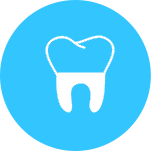All-on-4 and All-on-6 Dental Implant Materials
When traditional implants or dentures are not an option for your condition, your dentist could recommend all-in-one dental implants to replace your missing teeth and restore their function. Different materials are used for the restoration, and you could base your choice on the following factors:
- Your opposing teeth. If you have other dental restorations, you must ensure they go well with your dental implants in both outlook and function.
- If you have teeth grinding problems, materials like acyclic will not work well for you. This is because this material is easily damaged.
- Your age. Zirconia lasts longer than other materials. Therefore, if you are younger and have more years to live, all-on dental implants made of zirconia will serve you longer.
- Your Oral health. Depending on the health of your bone, the dentist will recommend the right material for you.
- Your budget. Materials used for all-on-4 dental implants vary in price. Acrylic implants are the cheapest, while zirconia makes the most expensive restorations. The amount you are willing to spend on the restoration will dictate the type of material you choose.
Common All-on dental implant materials include:
Acrylic
Acrylic implants are a traditional option for dental implants and are made of titanium. Your dentist can recommend this
material if you do not grind your teeth and work on a low budget. The acrylic implants are an easy fix and are available
in all sizes. However, these implants do not offer the aesthetic value other dental implant materials offer. If your
all-on implants are made of this material, you must be extra careful with them since they are prone to damage.
Porcelain
Dental implants made of porcelain are designed like crowns and bridges. This makes them last longer than acrylic
implants. A key benefit of porcelain implants is that they are custom-made to fit any style. However, these implants are
difficult to repair in case of damage, and you may need new restorations.
Zirconia
The newest material for dental implants is zirconia. Compared to other dental restoration materials, zirconia is the
strongest material that mimics the tooth color. Additionally, the material can be customized. However, implants made of
this material are costly and require ultimate skill to fit. Whichever material you choose for your implants, you must
ensure to have a skilled dentist by your side.
 Acrylic
Acrylic Porcelain
Porcelain Zirconia
Zirconia










